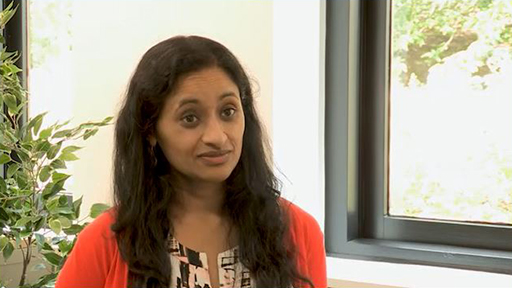11 Critiquing the SDGs
It is perhaps not surprising that the SDGs, in attempting to address major global issues, will be imperfect and subject to critique. The effort and work involved in reaching this level of agreement between many very different countries and cultures deserves recognition. Inevitably, achieving consensus imposed limits on the scope of the agenda for sustainable development and involved many compromises.
Activity 7: Experts’ opinions
Watch Video 3, where experts attending the 2019 Development Studies Association (DSA) conference gave their opinions on the limitations of the SDGs. What themes can you identify?

Transcript: Video 3: Critiques of the SDGs: experts’ opinions
Comment
- The SDGs are broad and aspirational. Having a vision is not necessarily a limitation − the SDGs should cover everything and be ambitious. The SDG framework as a whole is good.
- It is unclear if there exists the political will for the degree of action required to achieve them. They are voluntary and lack bite. Implementation of long-term development goals is not compatible with the short-term nature of national political cycles.
- Issues relating to justice, equality and discrimination are not easily captured by such goals and can be easily lost.
- Many of the SDGs relate to economic growth and this is in tension with environmental sustainability.
- There are challenges in reporting and measuring mechanisms.
Critiquing the SDGs in this way is an important part of your learning. Whilst recognising the positive achievements, it is essential to question and delve deeper into the underlying processes.
Positive and distinctive features of the SDGs is that they forge a set of development priorities and indicators that apply to all regions, all nation states and all localities, not just those labelled as ‘poor’ or ‘developing’. Agreement has been reached on these 17 overarching goals but there is ongoing contention over the meaning of the agreed goals, over who should benefit from them, and who is responsible for attaining them (Scoones, 2016).
By adopting a Systems Thinking (ST) approach and examining the SDGs in terms of power, agency, scale and history (PASH), you begin to probe deeper into the complexities of the processes involved. In exploring key criticisms such as those listed below, it is possible to apply a PASH element to each as a starting point and then ask how they relate to the other elements of PASH.
- Power: The SDGs do not go far enough in challenging the status quo. They protect existing political and economic interests that contribute to the very global issues, such as environmental degradation, poverty and inequality, the goals are supposed to address.
- Agency: Many people are excluded by uneven processes of development that are directed by and benefit the most powerful.
- Scale: Even though the SDGs are global in scale, implementation is dependent on national governments and governments can select which SDGs they wish to pursue. There is a danger of losing the bigger picture perspective.
- History: The SDGs are premised on the continuing pursuit of economic growth, which has produced stark social inequalities and damaged the environment.
The power in this case lies with global institutions and corporations which have access to economic resources and political influence. Developed countries are prominent in this although the developed-developing distinction is increasingly blurred with the rising influence of countries such as Brazil, Russia, India, China and South Africa (BRICS). This power dynamic is continually evolving. Agency is an interesting aspect to consider. Technological innovation and the spread of the use of social media gives people from all walks of life a degree of agency. How this impacts at different scales − local, national and global − varies and is somewhat unpredictable. Taking a historical perspective, the link between the SDGs and the efforts of developed countries to set and to lead global development agenda can be recognised.
